OUR COMMITMENT TO EQUITY
Equity is achieved when everyone has a fair and just opportunity to live the healthiest life possible, no matter who we are, where we live, or how much money we make. This requires understanding and removing obstacles that impact hunger, such as poverty and discrimination.
We recognize that poverty and hunger disproportionately impact families and individuals from historically oppressed and marginalized communities – the result of a long history of policies that have created and maintained barriers to opportunity for people of color and non-native English speakers.
At the Colorado Blueprint to End Hunger, we strive to center equity, diversity, inclusion, and belonging within all of our work. We demonstrate our commitment by:
The Blueprint will demonstrate inclusion by:
Welcoming and inviting all opinions and perspectives;
Ensuring everyone is treated with respect and fairness;
Seeking community and stakeholder voices that have historically been left out; and
Leveraging the unique perspectives, abilities, and qualities that individuals choose to share.
OUR EQUITY FRAMEWORK
As part of our organizational transformation, here’s how the Blueprint is now structured and organized, with diversity, equity, inclusion, and belonging centered within all of our work:
With equity as one of our core values, here’s what you can expect as a member of the Blueprint network:
Equity statement: We read an abbreviated version of our equity statement at the beginning of each meeting. It serves as a reflection of the Blueprint’s own commitment to equity, diversity, inclusion, and belonging, guided by our organization’s internal values and principles.
Language justice & accessibility: We are committed to accessibility for all. We host every Blueprint meeting in both English and Spanish and also offer automated closed captioning. (Please contact us if you have any other accessibility needs to fully participate. This can include but is not limited to interpretation and translations in other languages.)
Compensation: We offer compensation to anyone who voluntarily participates and is not representing an organization as a paid employee.
Meeting norms & expectations: We have established norms and expectations for all meetings to support our pledge to equitable practices.
Here are some of our practices to elevate community voice, build community power, and engage directly with those who have historically been left out:
Our Organizational Journey
In the summer of 2024, the Blueprint conducted an internal equity assessment to evaluate its practices and identify opportunities for growth in achieving equity. It’s our intention that this work underscores the organization’s commitment to dismantling systemic barriers and fostering a food system that is just, responsive, and sustainable for all Coloradans.
We have prioritized making this process transparent and accessible to everyone to inspire other organizations to undertake similar equity assessments. By sharing the tools, principles, and findings openly, we invite others to follow along in real-time and adapt our approaches to their own contexts. This commitment reflects our belief in collective progress and the value of shared learning.
Being Participant-Centered
Anyone is welcome to join and participate in the Blueprint!
Language justice ensures there’s space for participants to speak in the language that they feel most comfortable using. We offer simultaneous interpretation in Spanish and English, along with closed captioning, at all Blueprint-hosted meetings. We also provide all public communication in both languages.
We are committed to accessibility for all. Please contact us if you have any other accessibility needs to fully participate; this can include but is not limited to interpretation and translations in other languages.
We value and welcome participation by those with living or lived experience. As part of our commitment to equity, the Blueprint offers compensation to anyone who voluntarily participates and is not representing an organization as a paid employee.
Meeting Norms & Expectations
With equity as a core value and central part of our framework, we’ll demonstrate our unwavering commitment throughout every meeting and expect all attendees to do the same.
The Blueprint uses established norms and expectations for all meetings to support our pledge to equitable practices.
Standing in Solidarity with Indigenous Peoples
We stand in solidarity with Indigenous peoples and nations, recognizing the original stewards of our lands and the challenges that they continue to face today due to genocide and displacement by colonialism and U.S. public policy.
Our land acknowledgment, written by a local leader within the American Indian Movement, is one way we do this. It’s included within our equity statement, which is read at the beginning of every meeting. We also share it in other ways to honor Indigenous communities and encourage others to learn and take action.
We also support Indigenous efforts through grants for traditional food access, elder storytelling, and accomplice and self-determination trainings.
Accessible Funding Opportunities
We actively develop accessible funding opportunities to support community-based organizations – often those who are traditionally overlooked for funding – to increase healthy food access in their local areas and neighborhoods. They’re intentionally designed to minimize barriers, with only limited requirements to encourage instead of deterring or disqualifying interested applicants.
Additionally, the Blueprint creates shared opportunities for community members to lead decision-making around grant program development and distribution of funds.
Equity Resources & Opportunities
We encourage other organizations to start or continue their own equity journey. The Blueprint offers resources like a yearlong equity challenge, along with an equity continuum and self-assessment tool.
The Equity Continuum is a practical, self-assessment tool that aims to provide partners — those working in the field of anti-hunger and poverty — with a way to assess your organization's progression in shifting policies, practices, programs, and measures to advance equitable outcomes. It can be a helpful framework and educational tool for conversations with staff, strategic planning with boards, project and policy development, and advancement of community leadership.








